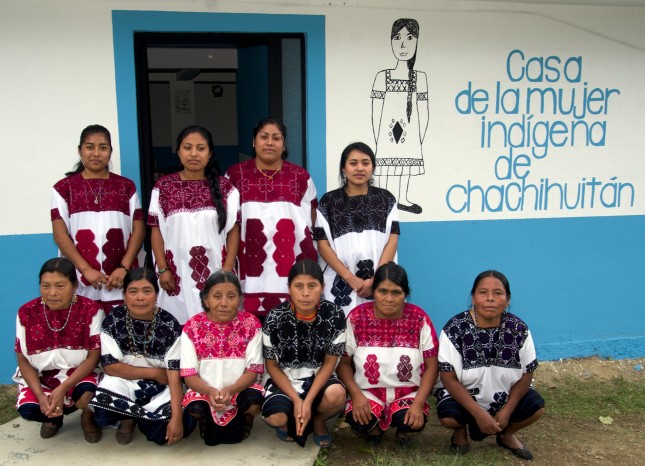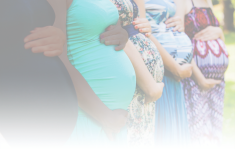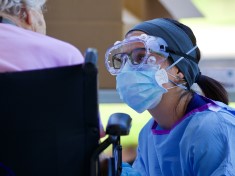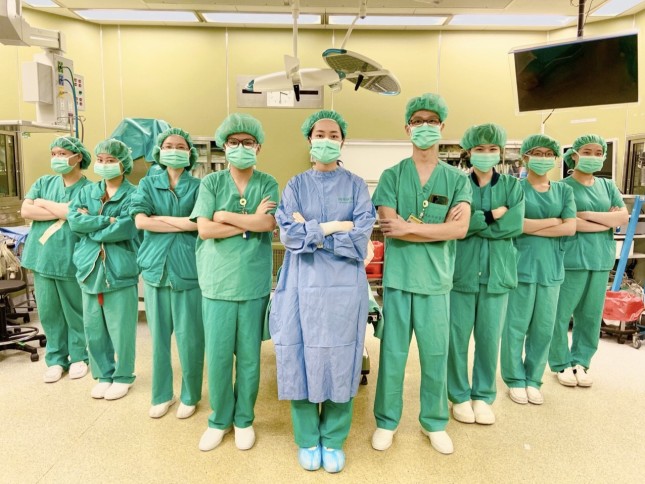-
Turning Applause into Action: Investing in Women Leaders in Nursing and Midwifery
›
“Midwives and nurses contribute to the health of women, families, communities, and society at large, but the impact of their care goes much further… Their care is transformational,” said Diene Keita, Deputy Executive Director for Programmes at UNFPA. She spoke at a recent event hosted by Women in Global Health, which virtually convened nurses and midwives from around the world to celebrate 100 outstanding women nurse and midwife leaders from over 50 countries. The event occurred in honor of the Year of the Nurse and the Midwife, as designated by the World Health Organization (WHO). The list of 100 leaders is the first global recognition of its kind and commemorates women’s unique stories of resilience, leadership, and hard work.
-
Māori Midwives on the Power of Indigenous Birthing Practices
› Camille Harris, Registered Māori Midwife, is unapologetic about her decision to study midwifery and practice exclusively with Māori families, in this week’s Friday Podcast. “It was always to serve my people,” she said. Both Harris and her professional partner, Registered Māori Midwife, Waimaire Onekawa, started their midwifery careers later in life with a clear dedication to Māori women in New Zealand. “And we just want to be able to give women—Māori women—and whanau [family], the love and care that we would hope to receive if we were the people being the recipients,” said Onekawa.
Camille Harris, Registered Māori Midwife, is unapologetic about her decision to study midwifery and practice exclusively with Māori families, in this week’s Friday Podcast. “It was always to serve my people,” she said. Both Harris and her professional partner, Registered Māori Midwife, Waimaire Onekawa, started their midwifery careers later in life with a clear dedication to Māori women in New Zealand. “And we just want to be able to give women—Māori women—and whanau [family], the love and care that we would hope to receive if we were the people being the recipients,” said Onekawa. -
Midwife-Delivered Interventions Could Provide Dramatic Benefits
› In a year that has presented enormous challenges, it is even more gratifying to present evidence that strengthens the importance of midwives as providers of essential sexual and reproductive health (SRH) services and the impact they can have on maternal and neonatal mortality and stillbirths, said Anneka Knutsson, Chief of the SRH Branch at the United Nations Population Fund (UNFPA) at a recent Wilson Center event, in partnership with UNFPA and Johnson & Johnson, to launch the Impact of Midwives study conducted by UNFPA, the International Confederation of Midwives (ICM), and the World Health Organization (WHO) and published in The Lancet Global Health.
In a year that has presented enormous challenges, it is even more gratifying to present evidence that strengthens the importance of midwives as providers of essential sexual and reproductive health (SRH) services and the impact they can have on maternal and neonatal mortality and stillbirths, said Anneka Knutsson, Chief of the SRH Branch at the United Nations Population Fund (UNFPA) at a recent Wilson Center event, in partnership with UNFPA and Johnson & Johnson, to launch the Impact of Midwives study conducted by UNFPA, the International Confederation of Midwives (ICM), and the World Health Organization (WHO) and published in The Lancet Global Health. -
The Resurgence of Indigenous Midwifery in Canada, New Zealand, and Mexico
› Globally, Indigenous women experience worse maternal health outcomes than non-Indigenous women. In the United States, the risk of maternal death is twice as high for Native women than for white women, while in Australia the risk is four and a half times higher. This week’s Friday Podcast highlights remarks from a recent Wilson Center event with the United Nations Population Fund (UNFPA) and the International Confederation of Midwives about Indigenous midwifery.
Globally, Indigenous women experience worse maternal health outcomes than non-Indigenous women. In the United States, the risk of maternal death is twice as high for Native women than for white women, while in Australia the risk is four and a half times higher. This week’s Friday Podcast highlights remarks from a recent Wilson Center event with the United Nations Population Fund (UNFPA) and the International Confederation of Midwives about Indigenous midwifery. -
Knowledge Keepers: Why We Need Indigenous Midwives
›
“We need more Indigenous midwives,” said Claire Dion Fletcher, an Indigenous Potawatomi-Lenape Registered Midwife and co-chair of the National Aboriginal Council of Midwives (NACM), at a recent Wilson Center event with the United Nations Population Fund (UNFPA) and the International Confederation of Midwives about Indigenous midwifery. Globally, Indigenous women experience worse maternal health outcomes than non-Indigenous women. In the United States, risk of maternal death is twice as high for Native women than white women, while in Australia the risk is four and a half times higher.
-
The Unseen Side of Pregnancy: Non-Communicable Diseases and Maternal Health (New Report)
›
Around the world, approximately 18 million women of reproductive age die each year because of non-communicable diseases (NCDs), and two in every three deaths among women are due to an NCD. In fact, NCDs have been the leading cause of death among women globally for at least the past 30 years. And yet, women’s specific needs are often excluded from conversations about NCDs. They are underrepresented in clinical research and the effect of NCDs on women in particular is rarely considered. NCD-related symptoms during pregnancy are commonly misinterpreted or dismissed by clinicians.
-
Highlights from the First-Ever State of the World’s Nursing Report
›
The year 2020 has been designated as the Year of the Nurse and the Midwife by the World Health Organization. In April 2020, the World Health Organization (WHO), International Council of Nurses, and Nursing Now, published the first-ever State of the World’s Nursing Report. This week’s Friday Podcast highlights remarks from a recent Wilson Center event on the report’s findings and recommendations, gender implications in the health workforce, and the role of nurses during the COVID-19 pandemic.
-
Strengthening our Health Systems Means Giving Voice to Women Leading the Nursing & Midwifery Professions
›
Since the onset of the pandemic, nurses and midwives have been asked in some facilities to work without personal protective equipment. Nurses have been sent home and lost their jobs simply because they insisted on following evidence-based practices, such as wearing masks. Some question whether the masks, gloves, gowns, and other commodities in short supply are more important than nurses who question the ethics of showing up when essentials aren’t available.
Showing posts from category midwives.


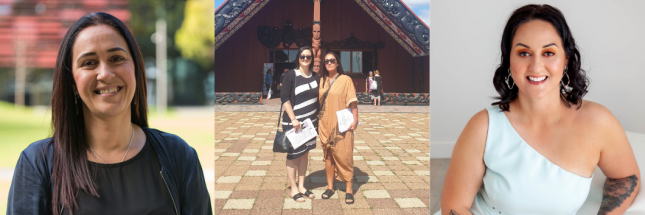 Camille Harris, Registered Māori Midwife, is unapologetic about her decision to study
Camille Harris, Registered Māori Midwife, is unapologetic about her decision to study 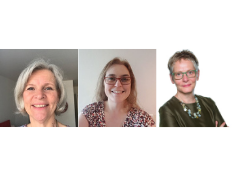 In a year that has presented enormous challenges, it is even more gratifying to present evidence that strengthens the importance of midwives as providers of essential sexual and reproductive health (SRH) services and the impact they can have on maternal and neonatal mortality and stillbirths, said Anneka Knutsson, Chief of the SRH Branch at the United Nations Population Fund (UNFPA) at a recent Wilson Center event, in partnership with UNFPA and Johnson & Johnson, to launch the
In a year that has presented enormous challenges, it is even more gratifying to present evidence that strengthens the importance of midwives as providers of essential sexual and reproductive health (SRH) services and the impact they can have on maternal and neonatal mortality and stillbirths, said Anneka Knutsson, Chief of the SRH Branch at the United Nations Population Fund (UNFPA) at a recent Wilson Center event, in partnership with UNFPA and Johnson & Johnson, to launch the 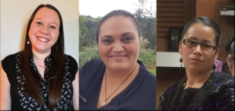 Globally, Indigenous women experience worse maternal health outcomes than non-Indigenous women. In the United States, the risk of maternal death is
Globally, Indigenous women experience worse maternal health outcomes than non-Indigenous women. In the United States, the risk of maternal death is 